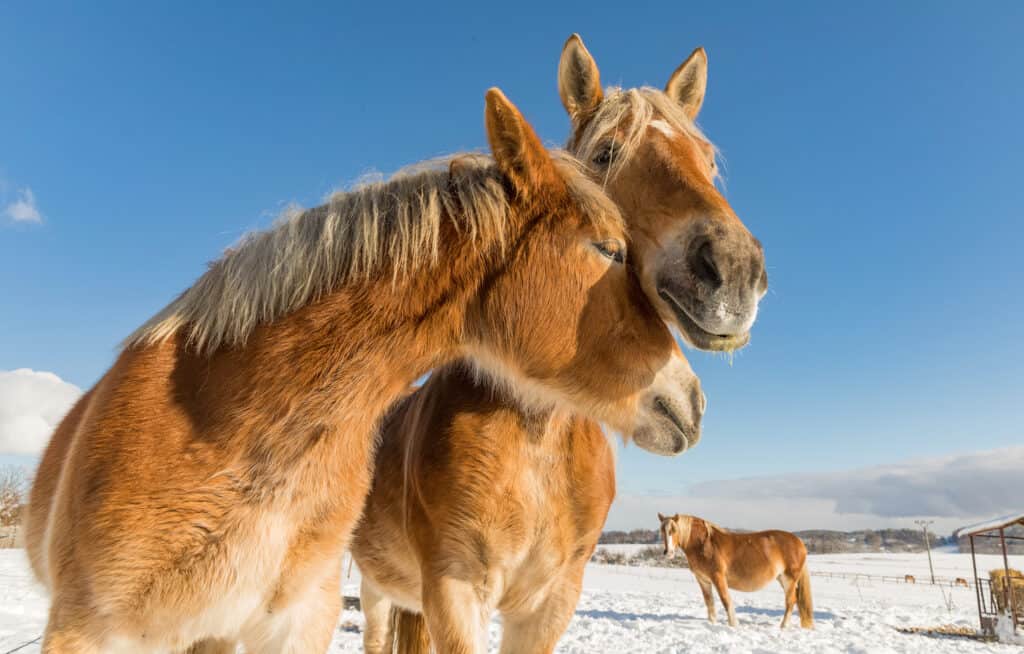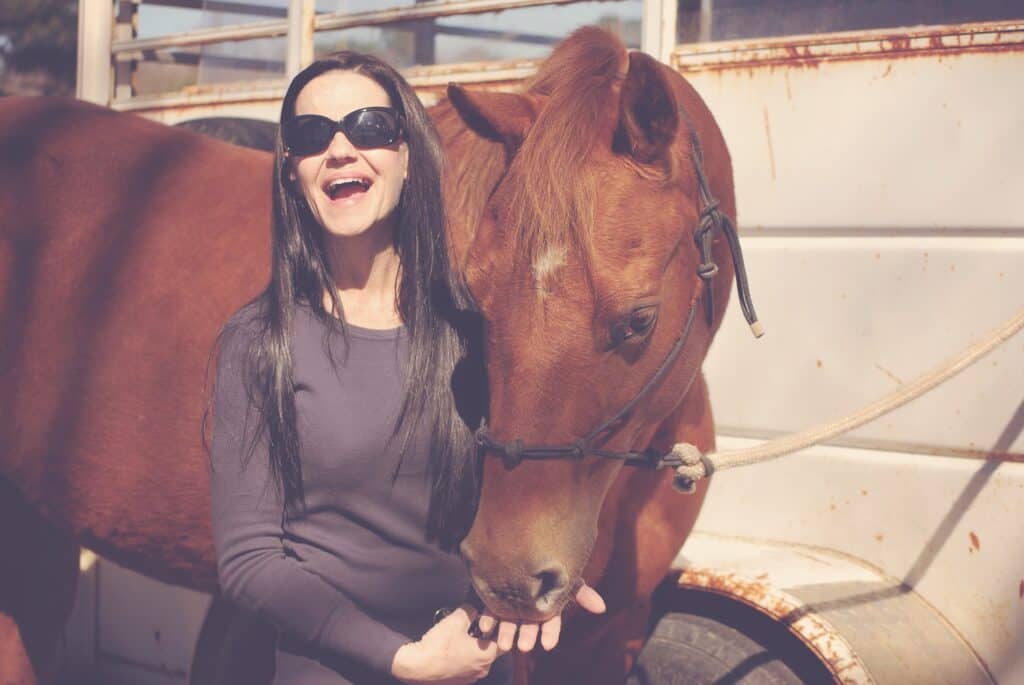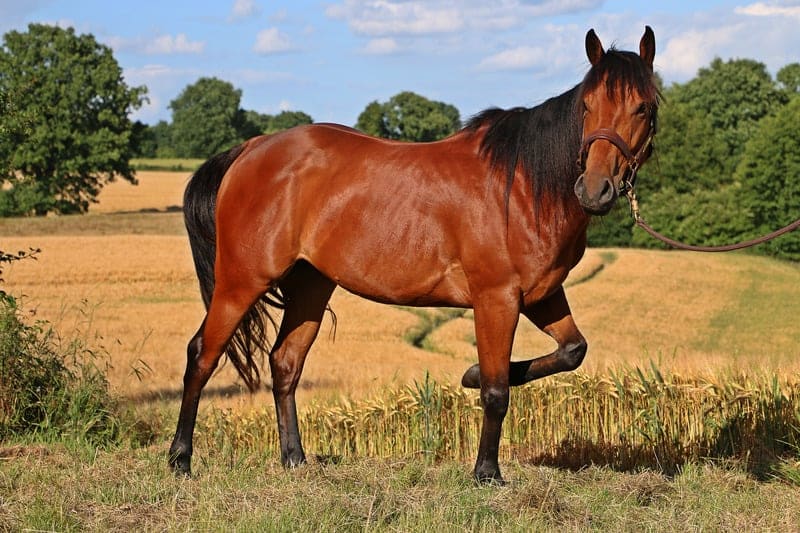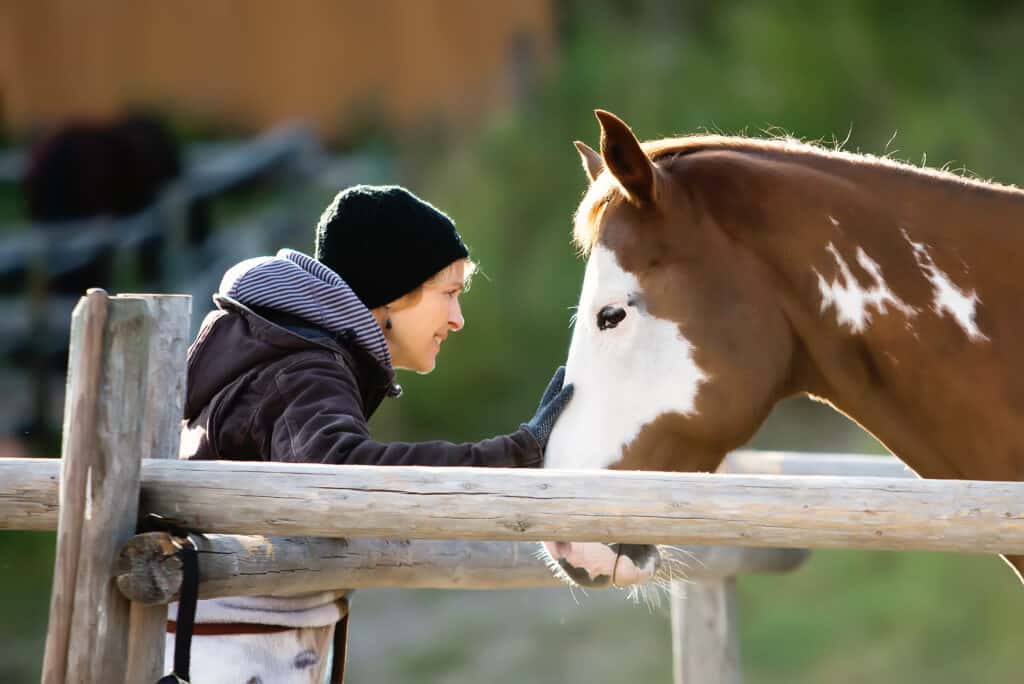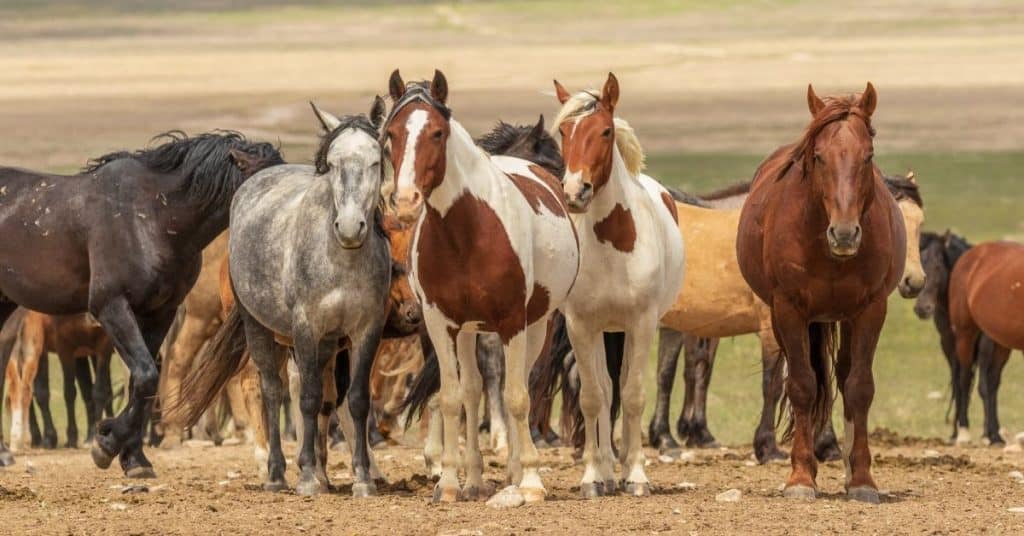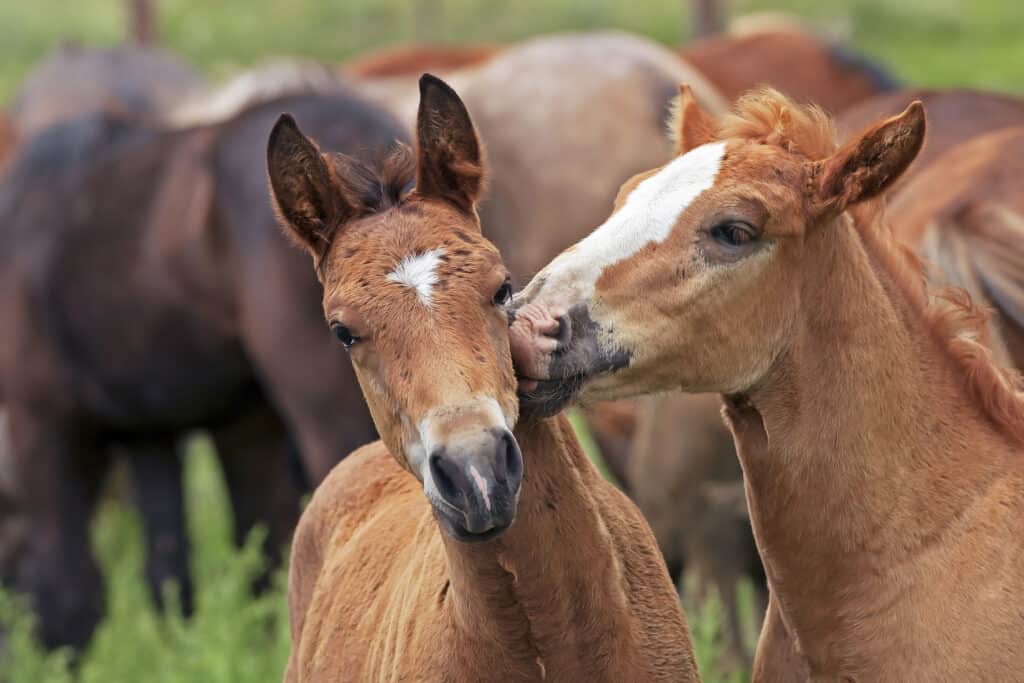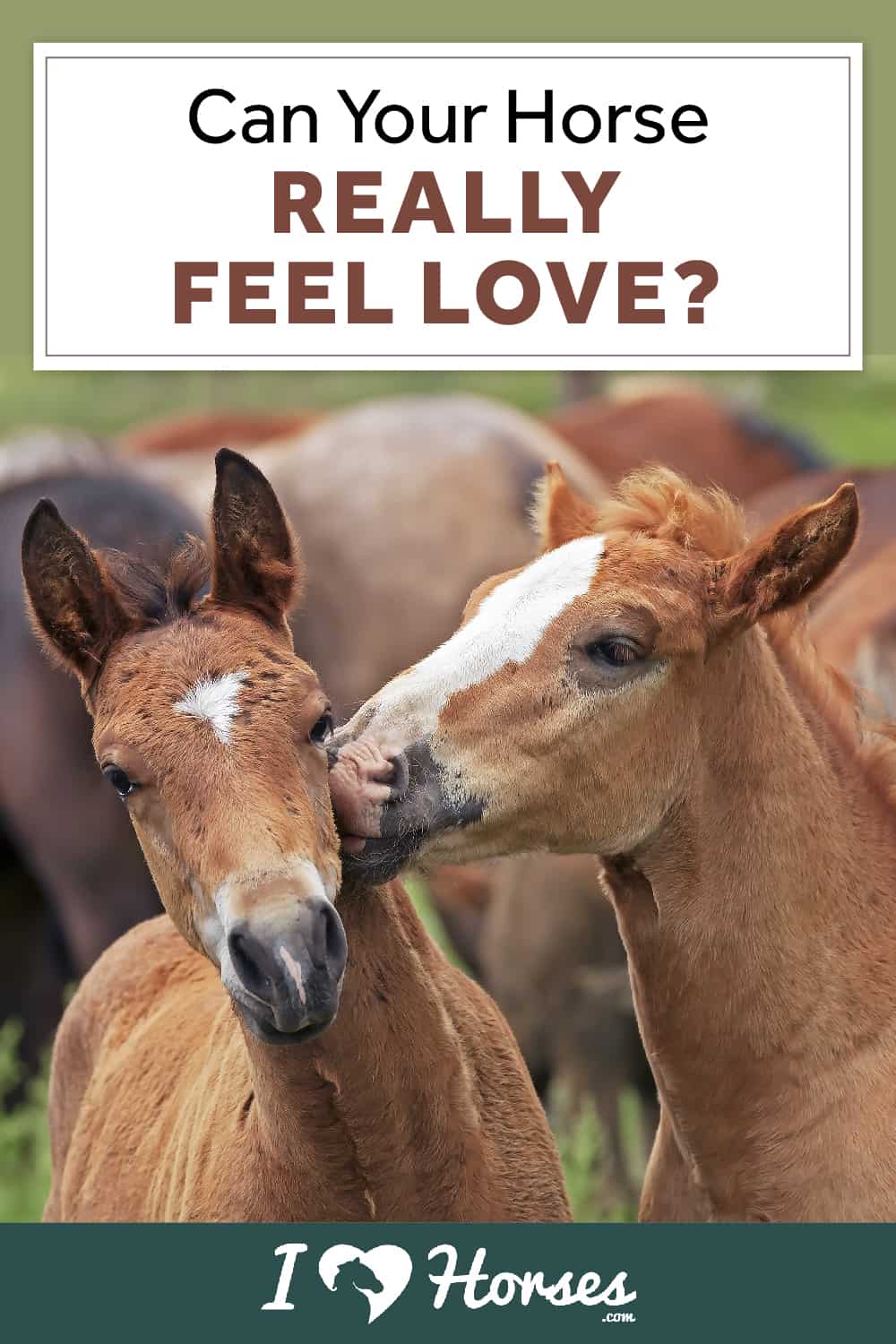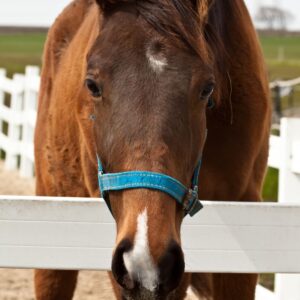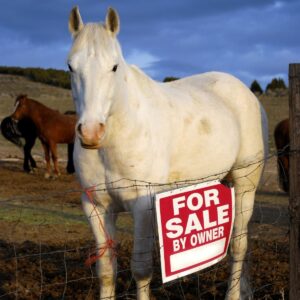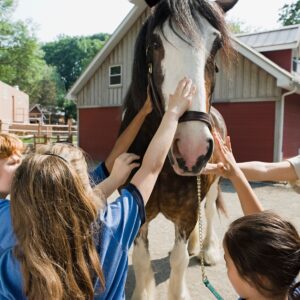There are definitely strong opinions on this subject. Some say horses can love their human companions. Others say they only love other animals in their herd. It really depends on your definition of the word love.
What is your definition of love?
Merriam Webster defines the word "love" as "a strong affection for another arising out of kinship or personal ties."
As humans, we have a terrible habit of throwing the word "love" around to mean anything from attraction to emotional dependency. For this article, we want to focus on love based on trust, mutual respect, loyalty, and a sense of enjoyment with the need to protect each other's mental and physical well-being. Love is necessary for strong human friendship, a good marriage, and an agreeable equine partnership.
Types of love:
There are different kinds of love, and these are a few of the types for animals. Familial love of humans is where one is willing to lay their life on the line for ones they love.
Next is the everlasting love of a lifetime friendship.
Herd love is most common in horses. They trust each other with their lives to alert them to danger and predators. There is a system of hierarchy based on earned respect and wisdom. We cover this more in our article "The Boss Mare: What She Means to the Herd." Some will argue that this is pure instinct and not love. Others will say that once you establish yourself as part of the herd, you will be included in that herd's love bond.
Animals have affection, yes, but love?
Animals can and do create bonds, which include affection, trust, and loyalty. Some people report that they think horses have a different way of thinking than humans. Therefore, they lack awareness and the ability to process the meaning of a bond and invest more into it. They reason that animals go with the flow and follow pure instinct and not reason.
Do horses show love? You will have to form your own opinion. The only thing I can do is share with you this story.
There was a 14-year-old girl who finally proved to her parents she could care for and train her own horse. They surprised her with a beautiful bay filly who was 18 months old. The day she was brought to the ranch, she tried to crawl out the trailer's feed door, cutting her face up bad enough to need stitches. The girl's first interaction with the filly was to follow vet instruction and doctor the scared little horse for several days. It took some time and a lot of patience, but the filly started to trust the girl.
For the next two years, the girl worked with this filly daily. She used groundwork to further earn the filly's trust and respect. The filly's education also included the basic manners she needed so that the farrier safely could do his job. She was a registered American Quarter Horse, and the plan was to make her a show horse. So, they worked on halter and showmanship maneuvers also.
Fast forward two years...
Now the filly is three years old and ready to start under saddle. The girl is one month short of her sweet 16 birthday. Tragedy strikes, and the girl has a grand mal seizure. The doctors tell her that they can't find a reason for the seizure. They diagnosed her with epilepsy.
For most kids about to turn 16, being told they would not be able to drive would be devastating. But for this young lady, the most overwhelming part was when the doctor told her she needed to stop riding horses. She tells her parents she will not give up riding. Epilepsy will not define who she is, and like any defiant teen, she keeps riding.
Her parents are very reluctant to let her in the barn, let alone ride, until they start noticing strange behaviors in the filly their daughter has been working with for the past two years. It begins as little things. While in the stall with the filly, the daughter gets a blank stare in her eyes. The filly steps next to her and gently (for lack of a better word) pins her to the wall. All of a sudden, the girl starts to seize, and the filly keeps her upright until help arrives.
Another time, the girl is in the pasture with her father when she has another seizure. The filly steps over the girl and keeps all of the other horses away from her until someone she trusts comes to help her human friend. I say "someone she trusts," because the only humans she would allow near the girl, in these situations, were her parents and sister. They had to catch the horse and move her if paramedics were called.
The service animal trainers tell her parents that only certain animals can detect seizures before they happen. It takes extensive training and natural instinct for a dog to become a seizure service animal. They are amazed that this horse has basically become a self-taught seizure service animal.
Was it instinct or love developed over years of companionship?
After some major pleading and compromises made on both sides, her parents agree she can continue to train her filly. She is to be supervised by someone during all training sessions, and there will not be barrel racing or jumping allowed. After observing the two in training, the girl's father would brag, "That is the only horse I have ever seen step sideways to keep someone on her back. When my daughter has a spell, she will lay forward over the horse's neck, and the mare keeps her there until it is over."
The girl and filly continue training diligently and eventually win Grand Champion All-Around Mare at the State Fair and several AQHA points in multiple disciplines. Meanwhile, the doctors are able to find a combination of medicines that control the seizures. This is wonderful because the girl is able to get her Equine Science degree at college.
Fast forward four years after college...
The girl has moved away from home and is running a training stable in another state. The mare is now nine, and they only see each other on rare holidays. The girl works hard and pays to have the mare professionally transported across the country so they can be together and teach new riders about horsemanship.
The mare steps off the trailer, tired and ready for a stall where she can lay down. But then the girl says, "Hello Coffee." The mare's head flies up, and she immediately starts looking around. She trots over to the girl and pushes her head against her chest, then "hugs" the girl's shoulder with her throat latch. They are together again. It was a long four years for both of them.
The last part of this story is about herd love.
Here we fast forward seven years. After working together, introducing new equestrians to the world of horses, life changes for the girl, and she relocates to another state. In so doing, she has decided that her beloved mare has more than earned her right to retire in the rich grass pastures she grew up on.
So, she takes the horse home. It is a beautiful day, and the windows on the pickup are rolled down. The truck and trailer pull onto the dirt road leading to the ranch. The mare starts whinnying for all she is worth. Somehow, she knows she is home. It has been seven years, but she knew!
By the time the trailer pulls up to the gate of the pasture, a herd of horses awaits them. This herd consists mostly of horses who had been raised with this mare. The girl unloads the horse, gives her a hug and a kiss, then releases her into the pasture. There is no squabbling within the herd; they all went to "grooming" her. It's a visible show of welcome home.
Horse Courses by Elaine Heney
- Listening to the Horse - The Documentary by Elaine Heney & Grey Pony Films
- Shoulder In & Out Training for better balance, bend & topline development with your horse
- Over 110+ Polework Exercises & Challenges to Download
- Dancing at Liberty & Creating Connection with Your Horse (11 lessons) - Grey Pony Films
After seven years, they still remembered and accepted her.
I know this story because it is my story. I was diagnosed with Epilepsy at the age of 16. The mare in the story was a bay American Quarter Horse named First Lady Coffee. I called her Coffee because of her color, and at that age, I did not want a horse named "Lady." I cannot explain the love and bond we had, but it was tremendous for both of us. Do horses show love? You will have to form your own opinion. The only thing I can do is share with you a story.
What do you think of this story? Let us know in the comments below! And share this with another horse lover in your life!
About the Author
Wendy Sumner grew up on a quarter horse ranch in Wyoming. She helped raise and train horses to be shown in the American Quarter Horse Association. At college, she received her Equine Science degree and pursued her love of everything equine. She has spent the last 35 years raising and training horses and teaching lessons. We are excited that she has agreed to join our team as a researcher and writer.

